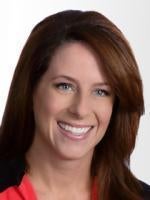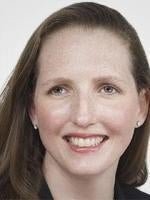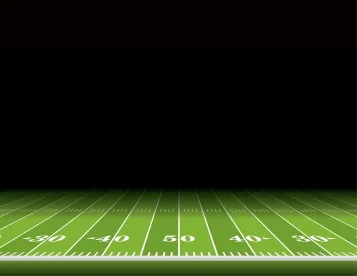A school district infringed on an assistant football coach’s rights under the Free Exercise Clause of the First Amendment when it suspended him for continuing to publicly pray after football games in violation of its policy, the U.S. Supreme Court has held. Kennedy v. Bremerton Sch. Dist., No. 21-418, 2022 U.S. LEXIS 3218 (June 27, 2022).
Background
Joseph Kennedy was a high school football coach at Bremerton High School (BHS), part of Bremerton School District, a religiously diverse district serving more than 5,000 students.
As a practicing Christian, Kennedy began a tradition of kneeling and praying on the football field’s 50-yard line after football games. Initially, Kennedy would pray alone. Eventually, members and coaches of both teams, students, and spectators would join Kennedy, who would lift a helmet from each team and deliver what he himself described as prayers. Kennedy also would lead players in prayer in the locker room prior to games.
The District learned of these activities through an opposing team’s coach’s comments. The District instructed Kennedy to keep his motivational speeches secular to avoid alienating students who did not share his beliefs and to avoid incurring liability on behalf of the District for violating the Establishment Clause of the Constitution. For a time, Kennedy appeared to agree. He stopped leading locker room prayers and prayed on-field only after the stadium emptied.
Subsequently, however, Kennedy’s attorney informed the District that he would resume public prayers on the 50-yard line as before. Kennedy publicized his intentions through many media appearances.
According to the Court, after the next home game,
Kennedy shook hands with the opposing team, and as advertised, knelt to pray while most BHS players were singing the school’s fight song. He quickly was joined by coaches and players from the opposing team. Television news cameras surrounded the group. Members of the public rushed the field to join Kennedy, jumping fences to access the field and knocking over student band members.
Against the District’s directives, Kennedy continued as before. Eventually, the District placed Kennedy on paid administrative leave. Later, when his contract expired, Kennedy declined to reapply for his position. He instead sued the District, claiming it violated his rights under the Free Exercise Clause of the First Amendment.
Supreme Court Decision
Leaning on its holding in Tinker v. Des Moines Independent Community School Dist., 393 U.S. 503, 506 (1969), that the First Amendment’s protections extend to “teachers and students,” neither of whom “shed their constitutional rights to freedom of speech or expression at the schoolhouse gate,” the Court agreed with Kennedy. But, as the Court held, teachers and coaches also are government employees paid, in part, to speak on the government’s behalf and to convey its intended messages.
Accordingly, the Court held that, to account for the complexity associated with the interplay between free speech rights and government employment, a two-step inquiry must occur.
Two-Step Inquiry
The first step, the Court explained, involves an inquiry into the nature of the speech at issue.
Here, did Kennedy offer his prayers in his capacity as a private citizen, or did his prayers amount to government speech attributable to the District? The Court concluded that Kennedy’s public prayers, in fact, were private speech, because he was not “acting within the scope of his duties as a coach.” Without analyzing the impact the publicity Kennedy pursued in relation to his religious displays, the Court characterized the timing and circumstances of his prayers during the postgame period as occurring when coaches were free to attend to brief personal matters and students were engaged in other activities. Thus, the Court found Kennedy did not offer his prayers while acting within the scope of his duties as a coach.
The Court said the second step requires the government to prove its interests as an employer outweigh an employee’s private speech on a matter of public concern.
The District argued Kennedy’s right to religious exercise and free speech must yield to the District’s interest in avoiding an Establishment Clause violation. The Court disagreed. It held that the District’s policy prohibiting employees from engaging in overt religious conduct while on duty was neither neutral nor generally applicable. The Court characterized the District as seeking to punish an individual for engaging in a personal religious observance based on a mistaken view that it has a duty to suppress religious observances, even as it allows comparable secular speech.
Implications
The Court has cast doubt on long-standing precedent clarifying the parameters of the Free Exercise and Establishment Clauses of the First Amendment, particularly as it applies to public school employees.
Prior decisions articulated the potential pitfalls when public schools appear to sanction specific types of religious observation. In Engel v. Vitale, the Court cautioned that “[n]either the fact that the prayer may be denominationally neutral nor the fact that its observance on the part of the students is voluntary can serve to free it from the limitations of the Establishment Clause.” 370 U.S. 421, 430 (1962). Later, the Court held that “prayer exercises in public schools carry a particular risk of indirect coercion.” Lee v. Weisman, 505 U.S. 577, 592 (1992). It explained, “What to most believers may seem nothing more than a reasonable request that the nonbeliever respect their religious practices, in a school context may appear to the nonbeliever or dissenter to be an attempt to employ the machinery of the State to enforce a religious orthodoxy.”
Despite this ideological shift, public employers should not read the Kennedy decision to elevate a public employee’s private right of speech over the interests of public employers. The Court noted,
Of course, none of this means the speech rights of public school employees are so boundless that they may deliver any message to anyone anytime they wish. In addition to being private citizens, teachers and coaches are also government employees paid in part to speak on the government’s behalf and convey its intended messages.
In practice, public employers must continue to carefully consider the purpose of any policies implicating the religious practices of its employees. Such policies should be neutral and generally applicable. Before taking any action, analyze the context surrounding a public employee’s religious expression to juggle the Free Speech, Free Expression, and Establishment Clause rights involved. Public employers also will need to consider whether the religious statements or conduct were made or taken as a private citizen or on behalf of the public entity and whether there was any coercion of others to engage in religious activity. The Court’s decision also may extend to other claims (secular claims) of free speech by public employees.
Although the constitutional rights at play in Kennedy do not apply to private employers, private employers have experienced an increase in religious discrimination and religious accommodation claims. Private employers, like their public employer counterparts, may need to reassess steps they can take to avoid these claims.







 />i
/>i
